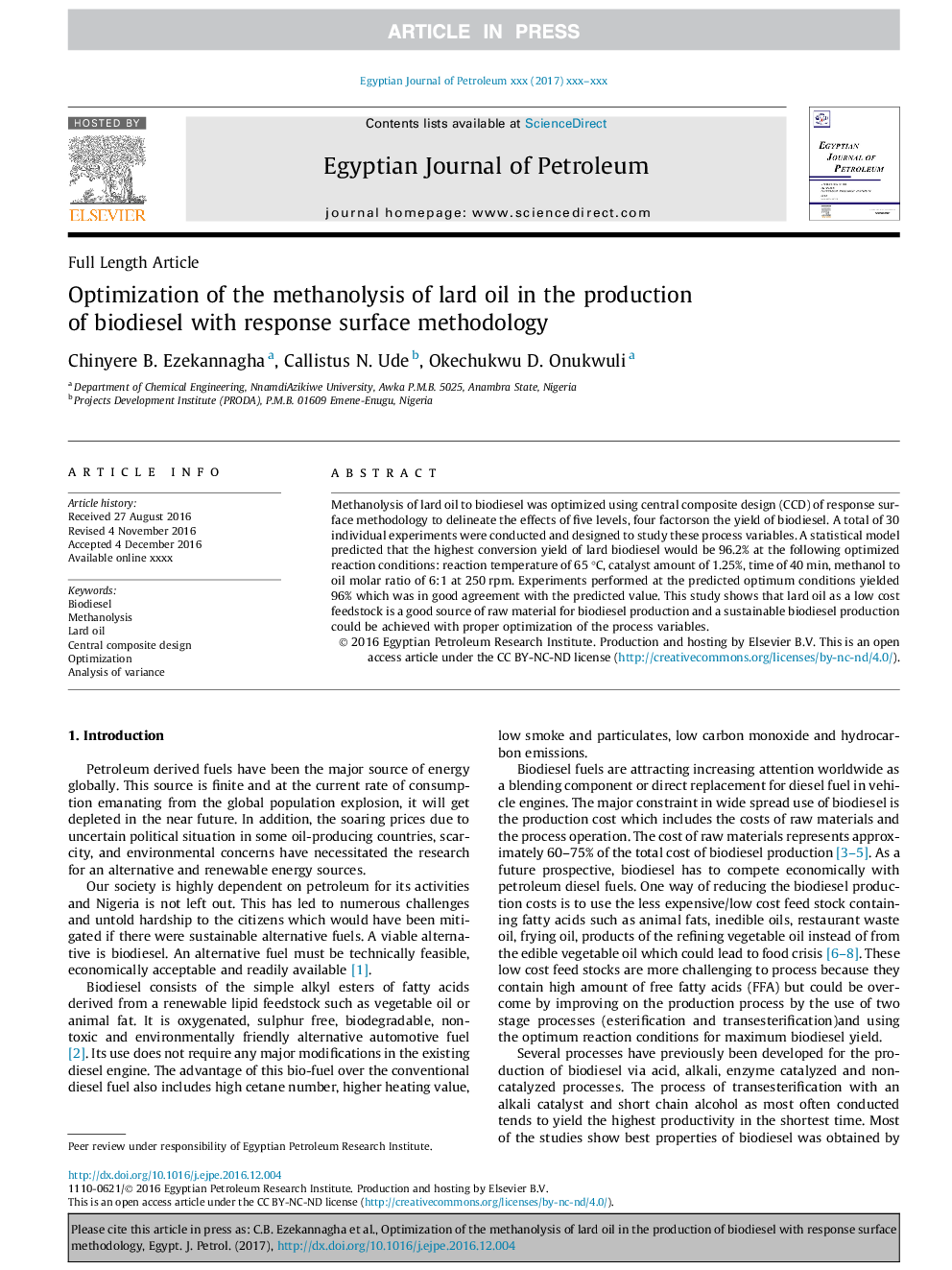| Article ID | Journal | Published Year | Pages | File Type |
|---|---|---|---|---|
| 8127775 | Egyptian Journal of Petroleum | 2017 | 9 Pages |
Abstract
Methanolysis of lard oil to biodiesel was optimized using central composite design (CCD) of response surface methodology to delineate the effects of five levels, four factorson the yield of biodiesel. A total of 30 individual experiments were conducted and designed to study these process variables. A statistical model predicted that the highest conversion yield of lard biodiesel would be 96.2% at the following optimized reaction conditions: reaction temperature of 65 °C, catalyst amount of 1.25%, time of 40 min, methanol to oil molar ratio of 6:1 at 250 rpm. Experiments performed at the predicted optimum conditions yielded 96% which was in good agreement with the predicted value. This study shows that lard oil as a low cost feedstock is a good source of raw material for biodiesel production and a sustainable biodiesel production could be achieved with proper optimization of the process variables.
Related Topics
Physical Sciences and Engineering
Energy
Energy (General)
Authors
Chinyere B. Ezekannagha, Callistus N. Ude, Okechukwu D. Onukwuli,
